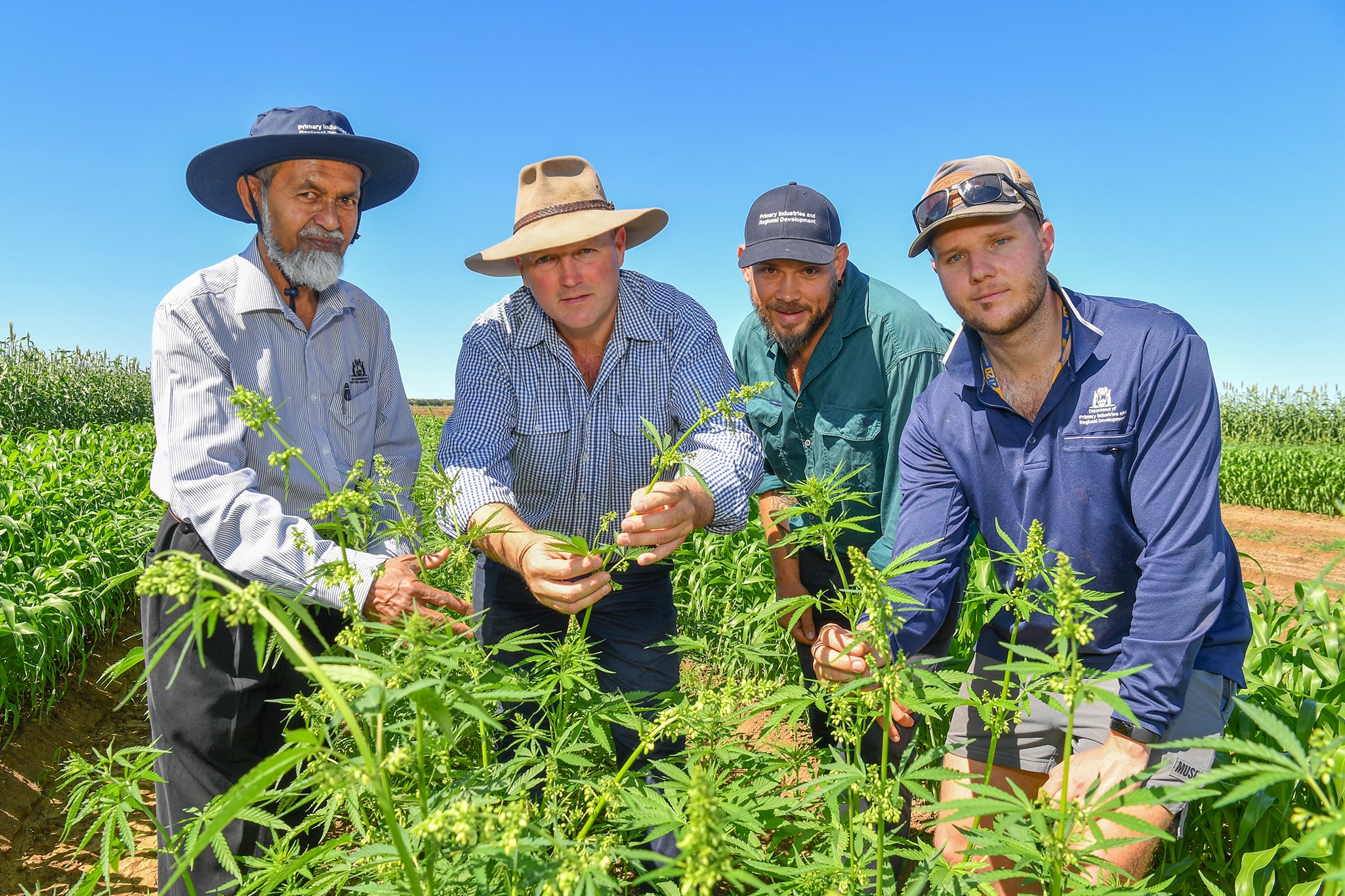
A field day to showcase the crop from the third and final year of the trial was held at the Department of Primary Industries and Regional Development’s (DPIRD’s) Frank Wise Institute of Tropical Agriculture recently.
The research is part of AgriFutures Australia’s national Industrial Hemp Variety Trial, supported by DPIRD.
Industrial hemp grain is prized for its health benefits, due to its high protein, and polyunsaturated fatty acid content, and used as a whole seed, flour and oil in baked goods, cereals, milk and as a spread.
Nine varieties sourced from Australia, China and France are being assessed this year, bringing the total number of cultivars evaluated during the trial to 18.
The 2024 trial was planted at a rate of 150 plants per square metre, with time of sowing dates of 18 April and 16 May 2024, while another crop was planted just days before the field day on 13 June.
The autumn planted long season varieties now stand 1.5-2.5 metres tall and the short season varieties are 1-1.5m tall.
DPIRD research scientist Rhys Flynn said several varieties stood out during the three-year trial, which could be used for different purposes.
“This year, all the long season varieties, Bama, Han Cold and Yuma, are showing good potential, while the short season varieties, Ruby, Bundy Gem and Futura-75, are looking particularly promising,” he said.
“In 2023, Ruby, Han Cold, King Gee and Yuma had the highest grain yields, as well as total dry weight, making them all suitable for production in the region.
“While these dual purposes varieties are suitable for grain and fibre production, Han Cold, King Gee and Yuma were the stronger performing varieties where fibre is considered the higher priority.”
The trial demonstrated that establishment was the biggest challenge for the north, due to high soil temperatures.
“Current results suggest planting from late April to early June is the ideal window for grain production,” Mr Flynn said.
“Care should be taken to avoid high temperatures when planting and to ensure an adequate plant density.
“If plant density is too low, growers will run into heading issues at harvest, due to thicker plant stems.”
The Kununurra trial will be harvested in July, with short season varieties harvested first followed by long season varieties about 40 days later, while the third time of sowing varieties are expected to be harvested mid-October.
Results from the Kununurra trial will be published after threshing, cleaning and analysing all collected parameters.
The northern trial complements another at DPIRD’s Manjimup Horticulture Research Institute, which is evaluating 12 varieties as part of the national trial.
Seed from industrial hemp varieties are not intoxicating and along with hemp seed oil was permitted for human consumption by Food Standards Australia New Zealand in 2017.
AgriFutures Australia Emerging Industries Manager Madonna Armit said the industrial hemp variety trials provided growers and processors with critical insights into the suitability of different lines to local growing conditions.
“AgriFutures is now building on this foundation with a $2.5 million national program of research focused on improved hemp seed, production methods, industry sustainability and the development of hemp-based products,” Ms Armit said.
“With the global industrial hemp market expected to reach $18.6 billion by 2027, the new research program will help Australian producers and processors capitalise on the opportunity.”
The field day also featured trials of new non-shattering sesame varieties, as part of research through the Sesame Central initiative.
The initiative is a collaboration between AgriFutures and the Cooperative Research Centre for Developing Northern Australia and CQUniversity, supported by DPIRD and the Northern Territory Department of Industry, Tourism and Trade.
“Both sesame and industrial hemp have the potential to play a key role in northern broadacre farming systems, as high-value rotation crops that are well suited to the Top End environment,” Ms Armit said.
To find out more about industrial hemp visit the AgriFutures Australia website.


